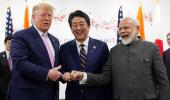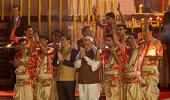It is for the investigating agencies to probe all aspects of the assassination, including a possible Chinese hand, or if the killer was just a disgruntled element who acted on his own and wanted to earn some dark space in history like Nathuram Godse or Lee Harvey Oswald, notes Japan expert Rajaram Panda.
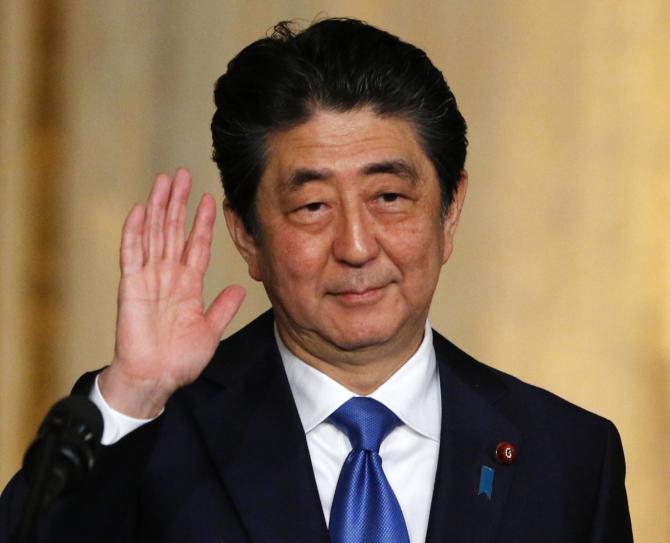
The morning of 8 July begun for me with the devastating news that former Japanese prime minister Abe Shinzo, a true friend of India with whom I had a chance to briefly interact as a member of the India International Centre in August 2007 when he visited India during his first term as prime minister and for whom I had great admiration, was shot while delivering a speech ahead of the Upper House elections on 10 July.
He was shot twice from behind and collapsed on the ground immediately.
Abe was speaking near the Yamato-Saidaiji station in Nara at a rally in preparation of the elections.
Though initial reports said Abe was in a state of cardiopulmonary arrest, it soon transpired he succumbed to the gunshot wounds at the Nara Medical University Hospital, where he was rushed.
Though it was presumed that he died almost on the spot, medical protocol delayed the announcement of his death for some hours.
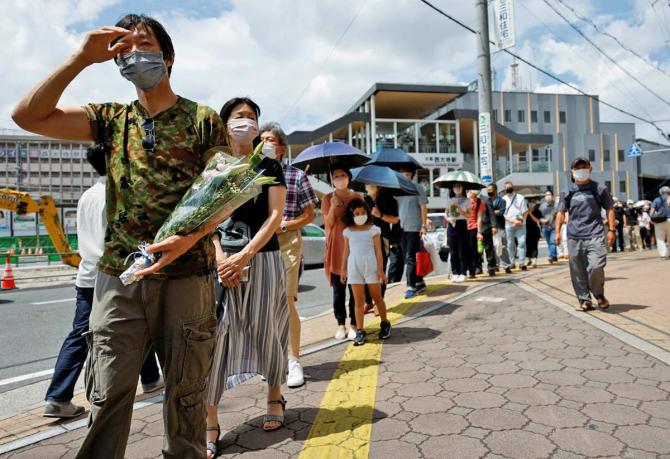
Identified as Tatsuya Yamagami, the 41-year-old assassin hailed from Tsu, the capital of Mie prefecture, and was visiting Nara for sightseeing purposes, but had a hidden agenda.
Yamagami told the police he was dissatisfied with Abe and that he had 'aimed to kill'.
Though the exact reason for murdering Abe shall take time to decipher, initial belief, as mentioned to me by a young Japanese friend from Tokyo hours after the incident, was that Yamagami wanted to kill a famous person with his handmade gun.
New information suggests that Yamagami resented a certain cult and thought Abe had a connection to the cult.
Yamagami worked for the Maritime Self-Defence Force -- Japan's navy -- for three years until about 2005.
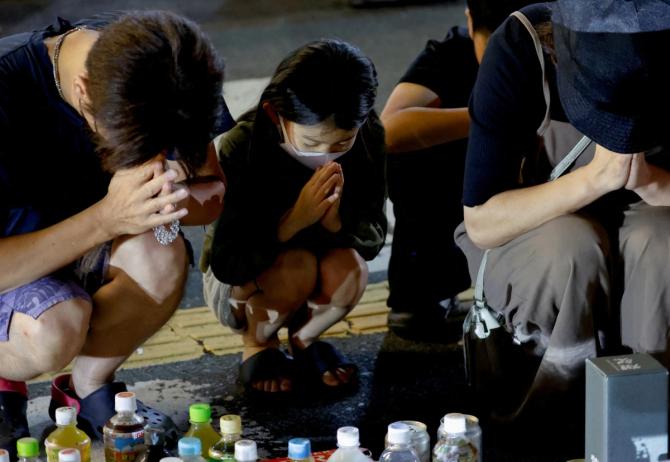
Since gun-related crimes are extremely rare in Japan unlike in the US, due to stringent gun control regulations, and therefore political rallies are normally held with low security, the police needs to investigate how a person could carry a weapon to a political rally.
After firing the shots, the assassin did not run away.
It was a handmade gun having a long cartridge and shape that required two hands to hold. Normally defence personnel are not trained with short guns.
The pellets when released on firing normally spread within some width, but it did not happen in this case as both bullets were released at Abe.
This indicates that the killer either trained himself or some external actor had rendered the training to fire from a shotgun.
These are issues for the investigating agencies to look into.
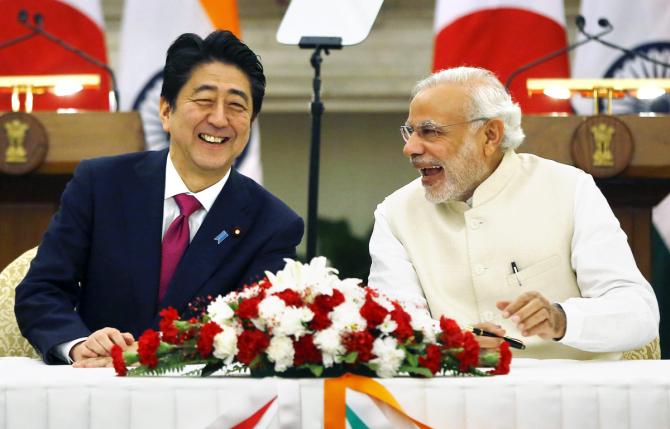
Prime Minister Narendra Modi took to Twitter and said, 'Deeply distressed by the attack on my dear friend Abe Shinzo. Our thoughts and prayers are with him, his family, and the people of Japan.'
Both leaders met with multiple times and PM Modi regarded Abe as his 'most dependable and valuable friend'.
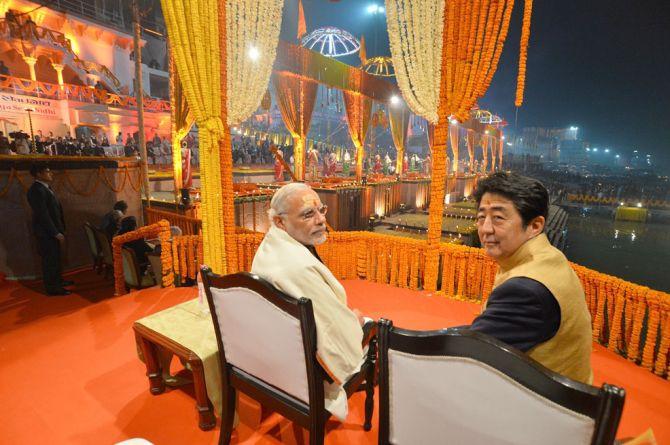
One has heard of political assassinations in South Asia -- India, Bangladesh, Nepal, Pakistan and Sri Lanka, but it was inconceivable for such a thing to happen in a peaceful nation like Japan where none of the factors that led to assassination of leaders in South Asia exist in Japan.
The world is quite in turmoil, as a friend in Delhi rightly put it when informed about Abe's assassination.
Whenever such incidents take place, conspiracy theories soon do the rounds.
Taking into account the external factors, such possibilities too cannot be ruled out.
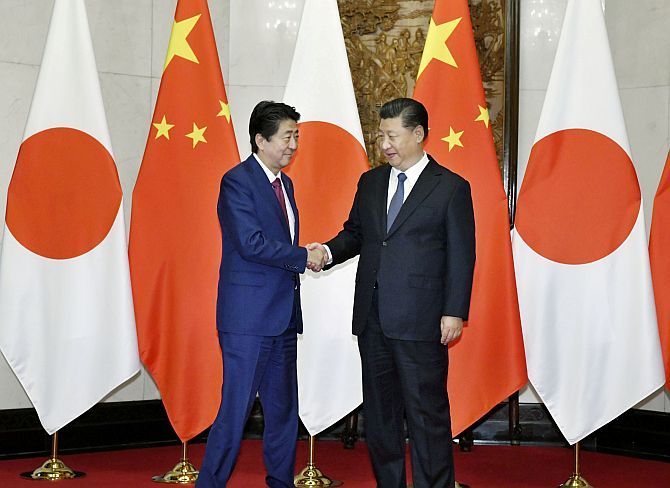
It was the first visit by a Japanese prime minister to China in seven years. Photograph: Kyodo via Reuters
The questions that beg answers are many.
Why was Abe chosen as the target? It is possible that Abe was a soft target with the objective to send a larger message to the political leadership in Japan and beyond that the gun culture and political violence have made an entry into Japan.
Did Abe err ever on any front? I do not find any blemish in Abe's long tenure.
Was there any external influence that led the assassin to act the way he did? There are some indicators that have some merit to such suspicion.
This suspicion stems from the way China's mouthpiece, Global Times, started at rejoicing Abe's killing.
Demonstrating immense immaturity and crossing the boundary of all niceties, it took a swipe at Abenomics at a time when Japan is in sorrow.
Abenomics was a comprehensive policy package unveiled by Abe and his government in 2012 to revive the Japanese economy after two decades of deflation while maintaining fiscal discipline.
By mentioning that anti-Abe sentiments always existed in Japan, the newspaper was only fuelling tensions that exist between the two countries.
Giving an ugly political overtone, Global Times observed Abe's killing can be a suitable alibi to facilitate NATO's entry into East Asia.
This is a nonsensical argument at a time of a crisis of colossus proportions that Japan faces at the moment.
An unnamed expert elaborated: 'Right-wing forces in Japan may become more active and tout war again amid the economic downturn, social divisions. The attack on Abe may accelerate the revision of a pacifist constitution, and cause a ripple effect to foreign policy, like ties with China and the US.'
Chinese nationalists started celebrating the assassination and termed the attacker a 'hero'.
It is for the investigating agencies to probe all aspects of the assassination, including a possible Chinese hand, or if the killer was just a disgruntled element who acted on his own and wanted to earn some dark space in history like Nathuram Godse or Lee Harvey Oswald.
India lost a true friend and the nation mourns.
But Abe's departure shall in no way affect India-Japan bilateral relations.
The foundation laid by Abe and Modi is already robust and bilateral ties shall continue to blossom even in the future.
Abe's inspiration shall remain relevant in the future as it has been in the past.
Dr Rajaram Panda is Senior Fellow at the Nehru Memorial Museum and Library, New Delhi, and former ICCR Chair Professor at Reitaku University, Japan.
Feature Presentation: Rajesh Alva/Rediff.com

